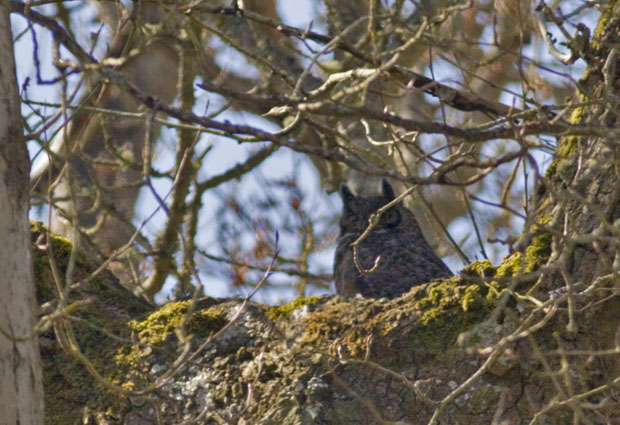Yesterday’s doctor’s appointment and today’s rain finally gave me a chance to finish Kevin Miller’s Home and Away: The Old Town Poems. Kevin, “kjm”, is a Tacoma poet who often comments here so I’m not going to pretend I could take an objective view of his latest book. As it turns out, there were quite a few poems that I liked well enough to mark for re-reading. I decided, though, that I would present this one because it gives readers insight into one of the defining characteristics of his book, empathy for others.
CUSTODIANS
for Jon Graham
The custodian leaves a note:
The storage shed is full.
Each letter distinctly cut,
his mark those typewriter g’s.
He wears a backpack vacuum,
listens to swing on headphones,
skips the poems in his New Yorker,
His keys fail to jangle like a movie janitor,
though he tells me stories about John Garfield.
He lives downtown close to the library.
He’s swing shift. Life restarts here early afternoon.
He shares a recipe with the office women,
and the room smells of ribs simmering,
potato salad with three types of onions.
I hear ice sliding into ice after someone
frees a cold beer from the galvanized tub
as he describes watching the parade from his house.
His voice is whisky and cigarettes,
and I walk into the cartoon of my job
when I accidentally interrupt his smoke
behind the dumpster, caught, and he laughs,
holds the cigarette cupped behind his back
as we both did between classes in the sixties.
Days before he crushes his finger moving tables,
he reviews the remake of War of the Worlds.
He waves both hands, ten digits intact,
as he describes the special effects,
praises non-stop action.
In consideration for my biases, he says,
Anyone could have played Cruise’s part.
On lunch duty, the movie game runs in my head.
Harry Dean Stanton plays the custodian.
He’ll need to put on a couple of pounds.
Today’s scene-the parent phone call:
The custodian called my son a little son of a bitch.
Jeff Bridges plays me-it’s my movie.
JB calls Harry into the office. It’s five p.m.
JB says: Sit. I got a phone call.
Harry laughs, embarrassed.
He says: Sorry, Boss, kid kicked the sink.
The little son of a bitch.
Camera pulls back.
Scene fades with laughter.
The lunch lady snatches a sixth grader’s tray,
he is a dollar short in his lunch account.
She plays herself. It’s no movie.
This is my mess to clean up.
I suspect that my 30 years of teaching high school contributes to my appreciation of this poem. I’ve been called into the principal’s office a time or two for exactly the kind of reaction that got the custodian called in, though I don’t think they always turned out quite like this. You’d have to be much more saintly than I ever was to go through a whole career without pissing off a parent or two.
I don’t think I ever actually went to a party at a janitor’s house, but I certainly empathized with their job since that’s how I put myself through college. And though I doubt any of them appreciated what I was teaching,”skips the poems in his New Yorker,” I always enjoyed visiting with them and more than a few times we saw students’ mistreatment of the facilities through the same eyes, unable to understand how any kid could behave that way.
Home and Away is accessible poetry that most people should find enjoyable. If you liked this poem or ones I quoted from his earlier book, get a hold of a copy, either by buying it or getting it from your public library. I don’t think you’ll be disappointed.

